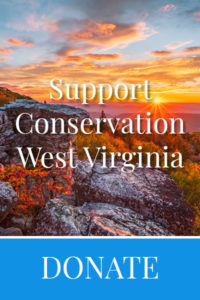Hannah Geffert
Senate District 16
(Jefferson and Berkeley)
SURVEY RESPONSES
Question #1. During the 2022 session, the Legislature adopted measures to broaden the energy mix in the state to include nuclear and geothermal energy sources (SB 4, HB 4098). Also introduced was a bill to establish an orderly planning and review process for evaluating these and other renewable energy sources for power generation (HB 3239). If similar legislation is introduced in 2023, will you support it?
Yes. I agree with the premise of HB3239 that our state must encourage the development of diversified renewable energy production means. This is necessary both to protect the environment and to attract new businesses which offer good wages and jobs which are careers which will expand our economy. Legislation which leads to the study and evaluation of various renewable energy resources creates sound policy, as does legislation which directs the energy production part of our economy to those renewable resources.
Question #2. During the 2022 session of the Legislature, bills were introduced that would have authorized local units of government to adopt local energy efficiency partnership programs and to create districts to promote the use of energy efficiency improvements by owners of certain real property (HB 2812, HB 2225). CWV supported these bills. If similar legislation is introduced in 2023, will you support it?
Yes. I support legislation like this for the reasons I gave in answer to Question 1. In addition, legislation like this enables local governments to help plan and implement measures necessary for their varying energy needs.
Question #3. During the 2022 session of the Legislature, legislation called the Clean Drinking Water Act of 2022 (HB 4055) was introduced. This legislation would have set maximum contaminant levels for what are called “forever chemicals” — perfluoroalkyl and polyfluoroalkyl substances (PFAS) in West Virginia drinking water supplies. It would also have created a PFAS Action Response Team to act as an advisory body within DEP, and required reports from facilities using certain PFAS. CWV supported HB 4055. If similar legislation is introduced in 2023, will you support it?
Yes. We have to stop killing ourselves by allowing the pollution of our water supply with carcinogenic chemicals. West Virginia will only grow if it offers a good quality of life. Clean, safe water is an essential for a good quality of life.
Question #4. During the 2022 session of the Legislature, legislation was introduced creating a comprehensive system to plug and prevent orphan gas wells in the state and to ensure adequate funding for the effort using well-specific escrow funds set up by the state Treasurer and funded by the operator (HB 4054). CWV supported this legislation. If similar legislation is introduced in 2023, will you support it?
Yes. I would support that legislation for the reasons I have given to previous questions. In addition, I, like the proponents of HB4054, believe that the businesses which pulled profit out West Virginia land should pay the cost of assuring that the wells they leave behind do not destroy that land.
Question #5. During the 2022 session of the Legislature, legislation was introduced to stabilize and improve the funding for the West Virginia Office of Oil & Gas, which would have enabled it to hire sufficient inspectors to cover the large number of gas wells in the state (HB 2725). The Office is only funded by one-time fees paid with the applications for permits for initial drilling of a well. It now has only one inspector for every 5000 wells. CWV supported this legislation. If similar legislation is introduced in 2023, will you support it?
Yes: Chemicals such as benzene, formaldehyde and acetaldehyde released into the air from oil and gas wells pose significant health risks, including causation of asthma and cancer. The current ratio of one inspector for every 5000 wells invites violation of air emission standards. The modest fee of $100 per well, per year to pay for inspectors is, in my view, totally appropriate, and places the cost of assuring safety standards are met where it belongs: on the industry.
Question #6. During the 2022 session of the Legislature, amendments to the Aboveground Storage Tank Act were adopted that weakened the inspection and reporting system for smaller tanks located in the critical zone along streams just above drinking water intakes. CWV opposed this legislation. If legislation is proposed in the 2023 session further weakening the inspection and reporting system for these tanks, will you oppose it?
Yes. Fortunately, HB 2598 died in the Senate Energy, Industry and Mining Committee. Had it reached the Senate floor, I would have opposed, and will oppose any similar bill should I be elected for a full term in the Senate. Given the recent history of pollution of water supplies by tank leakages, I see no reason to relax inspection standards. Leakage from smaller tanks poses the same sort of danger and leakage from larger ones.
Question #7. The West Virginia State Treasurer has announced a policy of using state banking contracts to punish financial institutions who choose to disinvest from fossil fuel industries. During the 2022 session, the Legislature passed SB 262 authorizing the Treasurer to compile a list of such institutions and to exclude them from competing for state banking contracts. CWV opposes this policy because it inappropriately uses coercion in the capital markets and may slow the transition to cleaner energy sources. If further legislation in support of this policy is proposed in the 2023 session, will you oppose it?
Yes. I voted in favor of SB262 in order to protect the jobs of West Virginia coal miners. I understand the reasons for the opposition of CWV, but did not think it would have the result feared by CWV. However, I would opposed any further legislation, as I think SB262 was more than sufficient to protect coal miners. I agree that any further legislation of this type is inappropriate for a free market system.
Question #8. Currently, no West Virginia State Park or Forest permits off-highway mechanized vehicles, including ATVs. CWV opposes any change to this. If legislation is introduced in the 2023 session to permit mechanized vehicles, including ATVs, in State Parks and Forests, will you oppose it?
Yes. My answer to this is really that it depends. I support the use of vehicles which allow the elderly and other who have mobility issues to use the trail systems of our parks. I do not support allowing the use of high-powered ATVs by those who have no mobility issues and merely seek high-speed experiences.

